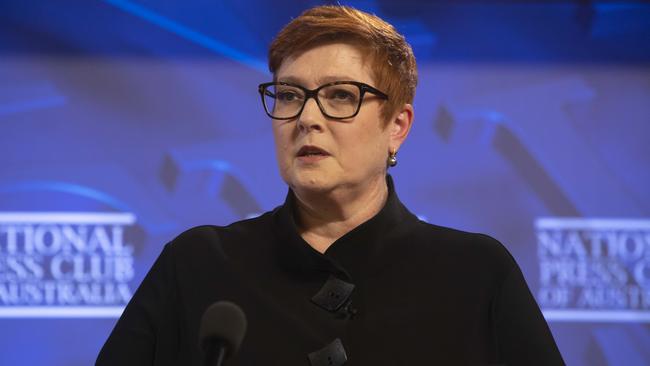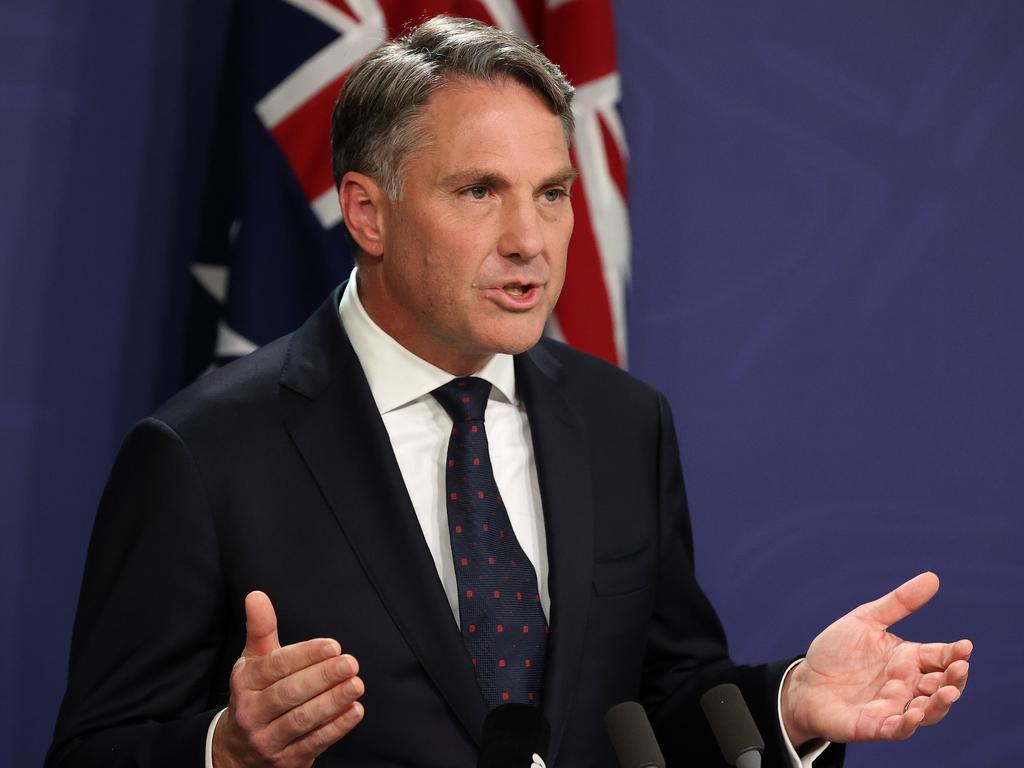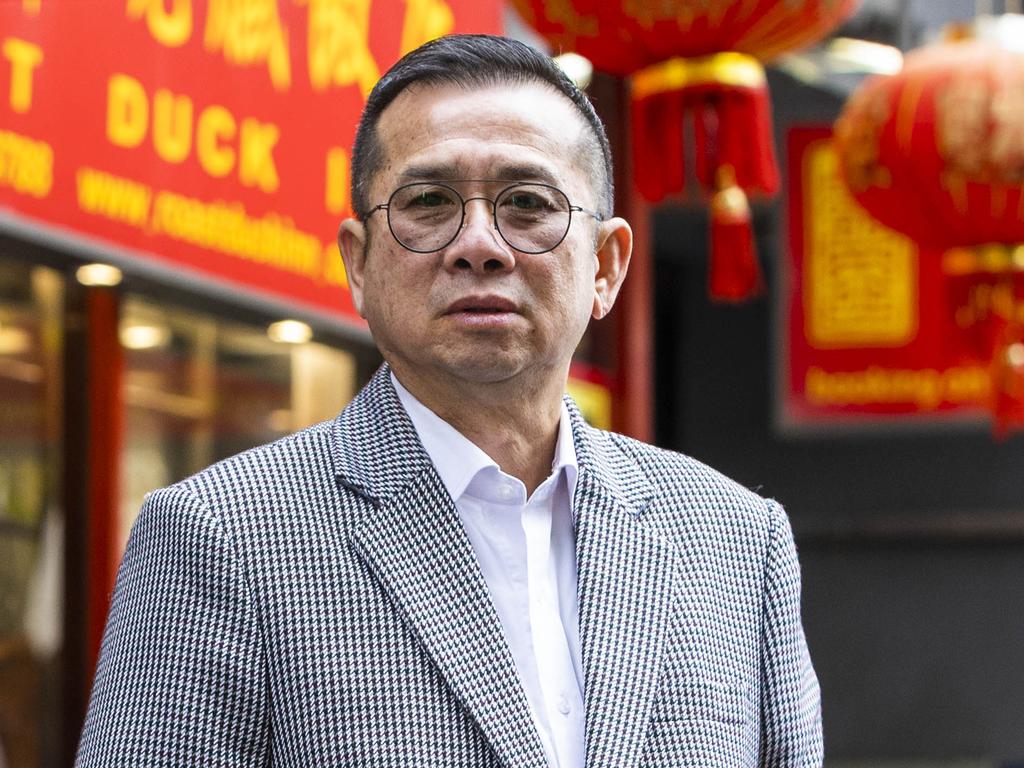Marise Payne’s Pacific push ‘stymied in cabinet’
Cabinet’s national security committee rejected a push last year by Marise Payne to double our Pacific aid to counter rising Chinese influence.

Cabinet’s national security committee rejected a push last year by Foreign Minister Marise Payne for Australia to double its Pacific aid funding to counter rising Chinese influence.
Senator Payne presented the revised Pacific Step-up strategy to cabinet colleagues in November as part of the mid-year budget process, arguing that Australia needed to dramatically increase its support for regional partners to prevent them being co-opted by Beijing.
The proposal – months before the Solomon Islands-China security agreement was signed – included a range of funding scenarios, the most ambitious of which would have increased Australia’s Pacific aid budget from $1.44bn a year to about $2.88bn a year by 2025-26.
Cabinet knocked back the proposal as too expensive, but approved two less-costly elements of the strategy – a $300m extension in Covid-19 support for the region and a doubling of the lending limit for Australia’s Infrastructure Financing Facility for the Pacific to $3bn.
Multiple high-level sources said the funding proposal, prepared by the Department of Foreign Affairs and Trade, aimed to harness Australia’s “soft power” strengths to counter China’s increasingly successful efforts to win over Pacific elites.
“It was highly, highly ambitious because the times call for that level of ambition,” a senior source told The Australian.
Another said: “We have been on to this (China challenge) for a long time now.”
The plan would have expanded funding across the aid program, with an emphasis on cementing economic ties with Pacific countries in ways that China could not, such as offering more jobs to Pacific workers under labour mobility schemes, and more university scholarships for the region’s future leaders.
Labor has accused the Coalition of failing to stem growing Chinese influence in the region, but its proposed $536m boost to Pacific aid over four years also falls well short of the amount DFAT believes is needed.
The Coalition restored indexation of foreign aid spending in the March budget, but kept overall aid to the Pacific largely static despite China’s growing influence in the region.
Senator Payne’s office said the minister did not comment on cabinet discussions but argued that the Morrison government was “easily the largest bilateral donor to the Pacific”.
“No government has been more attentive to the needs and priorities of the Pacific,” her spokesman said.
Labor foreign affairs spokeswoman Penny Wong said voters could not risk another three years of the Morrison government’s “failings in the Pacific”.
Scott Morrison “was warned about what was coming in the Pacific but he dropped the ball, and now Australia is less secure,” Senator Wong said.
“How many times will Mr Morrison ignore warnings? And what cost will Australians have to pay for his inaction?”
She said Labor’s promised foreign aid boost was “responsible”, and would harness Australia’s strengths in the region.
Australia’s strained relationship with key Pacific partners was dramatically demonstrated in recent weeks when Solomon Islands Prime Minister Manasseh Sogavare claimed his country was treated like children and threatened “with invasion” over its security agreement with China.
The accusation came after the Prime Minister declared a Chinese base in Solomon Islands would be a “red line” for Australia.
Mr Morrison on Thursday said if he were re-elected, he would visit Honiara and “many of the other Pacific countries that I had hoped to visit during the last three years”.
China’s efforts to win over Pacific nations will be a key agenda item at next week’s Quadrilateral Security Dialogue leaders’ meeting in Tokyo, where US President Joe Biden will launch his “Indo-Pacific economic framework”.
White House National Security Adviser Jake Sullivan said the “21st-century economic arrangement” would offer a new model for tackling challenges, “from setting the rules of the digital economy, to ensuring secure and resilient supply chains, to managing the energy transition, to investing in clean, modern, high-standards infrastructure”.
Labor leader Anthony Albanese has vowed to attend the Quad meeting with Senator Wong if he wins the election on Saturday, with deputy leader Richard Marles to remain in Australia as acting prime minister.
All three would need to be sworn in as soon as the election result was known to enable Mr Albanese to represent Australia at the regional security summit.
Mr Morrison has indicated he would attend the Quad meeting if he won the election, or – under parliamentary conventions – if the result remained undecided.








To join the conversation, please log in. Don't have an account? Register
Join the conversation, you are commenting as Logout